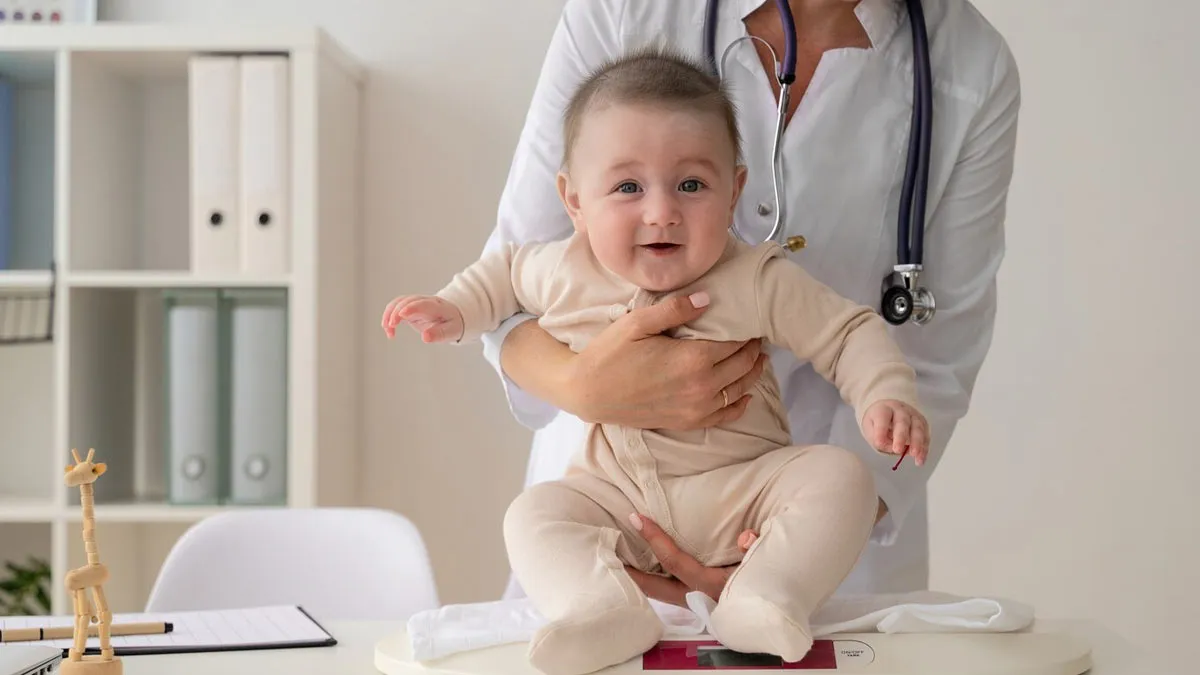
The first year of a baby’s life is marked by rapid growth and development, but it is also a time of exceptional vulnerability. During this period, the baby’s immune system is still maturing and learning to respond to the outside world after the warmth, safety, and sterility of life in the womb.
Table of Content:-
"Throughout my clinical career, I have emphasised to every new parent that engaging in preventive health is not just good practice; it is essential. It lays the foundation for a child’s lifelong physical, emotional, and cognitive well-being," said Dr Jitendra Jain, Senior Consultant, Neonatology, Cocoon Hospital, Jaipur.
Role of Preventive Healthcare

Preventive health for infants goes far beyond immunisations and routine wellness visits. It includes monitoring growth, conducting developmental screenings, and offering guidance on nutrition, personal and environmental hygiene, and safe sleep practices. By systematically addressing personal and ecological concerns, we can often identify developmental issues early, sometimes even before they become visible health problems.
“The first days and weeks after birth are especially critical. Newborn screenings, performed shortly after delivery, can detect congenital conditions, such as hypothyroidism, metabolic disorders, and hearing impairments. When necessary, early intervention can significantly improve a baby’s long-term developmental outcomes,” said Dr Jain.
Ongoing pediatric assessments, from the first week of life and continuing monthly, allow us to track important growth indicators, including weight, length, and head circumference. Deviations from expected growth patterns can signal nutritional deficiencies, infections, or developmental delays, and provide an opportunity for early, targeted intervention.
Milestones, Immunisations, and Responsive Parenting: The 3 Pillars
Milestones

"One of the most common questions I get from new parents is, "Is my baby developing normally?" A key part of that answer is understanding important developmental milestones, such as eye contact, social smiling, rolling over, sitting up, and walking; each milestone tells us about neurological and physical development," added Dr Jain.
Paediatricians can track milestones, share activities for parents to do, and encourage stimulating development when they observe appropriate progress. If any delay is noted, the paediatrician can refer you to a therapist or specialist early to maximise outcomes.
Immunisations
Immunisations are the second pillar and are an important part of infant preventive care. "During the first year of life, multiple vaccines are administered to protect the baby from many preventable, life-threatening diseases, such as tuberculosis, polio, diphtheria, whooping cough (pertussis), hepatitis B, and more," said Dr Jain.
There are multiple reasons why paediatricians don't want to miss an immunisation. It is hard to stress why it matters to adhere to the immunisation schedule, there is a reason for when the immunisations are given. The immunisation schedule is based on disease occurrence and a child's developmental vulnerability to certain diseases depending on age.
Nutrition

Nutrition is another cornerstone of preventive care. The World Health Organization (WHO) recommends exclusive breastfeeding for the first six months because breast milk provides optimal nutrition and passive immunity through maternal antibodies. For parents unable to breastfeed, it's crucial to consult a paediatrician to discuss alternative feeding options and ensure they receive necessary micronutrients, such as iron and vitamin D.
The physical health of children is just one aspect of their development. The emotional environment also shapes children’s health and development. Responsive (warm, attentive, and consistent) parenting positively affects brain development. Daily interactions like talking, and cuddles accompanied by eye contact are simple rituals that foster secure attachments and emotional resilience.
Also Read: Why Is Your Baby Not Sleeping Through the Night? Hear From An Expert
Allowing Parents to Focus on Prevention
In preventive paediatric care, parental education is arguably the most significant component. Informed parents notice the smallest indicators of discomfort be it a pattern change, excessive crying, or variability in sleep behaviour. "Engaged parents should be encouraged to maintain open access and communication with their child’s care provider; there is no such thing as too small of a concern to bring to anyone in charge of a child’s care," advised Dr Jain.
With sleepless nights and a newborn baby, preventive healthcare can feel unimportant or take a back seat. However, short-term investments in time and attention to routine appointments, monitoring growth charts, following recommended immunisations, and providing a loving home can yield both immediate and long-term benefits. These actions help infants reach developmental milestones and give babies the best opportunity for lifelong health and well-being.
Bottomline
Dr Jain concluded, "In the whirlwind of early parenthood, it’s easy to become consumed by the day-to-day challenges, but embracing preventive care is one of the most powerful ways parents can safeguard their baby’s future. The first year sets the stage for a lifetime of health, and every well-baby visit, immunisation, and nurturing interaction contributes to building that foundation."
By prioritising prevention through informed parenting, timely medical care, and emotional connection, we give our children not just a healthy start, but the tools to thrive well beyond infancy. Investing in prevention today promises a healthier tomorrow.
[Disclaimer: This article contains information provided by an expert and is for informational purposes only. Hence, we advise you to consult your professional if you are dealing with any health issue to avoid complications.]
How we keep this article up to date:
We work with experts and keep a close eye on the latest in health and wellness. Whenever there is a new research or helpful information, we update our articles with accurate and useful advice.
Current Version